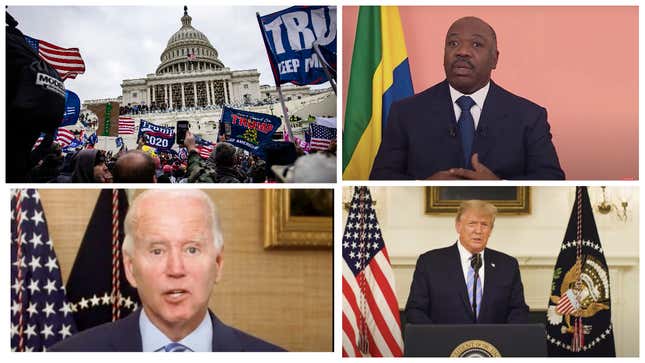
Digitally altered and AI-generated videos, dubbed “deepfakes,” have existed for years and have recently seen drastic improvements. Those videos, mixed with the extreme reach of social media and declining trust in traditional media, have experts worried of harmful rises in political disinformation; those same experts are also worried we’re quickly approaching a new, more complicated issue: lawyers and liars claiming real videos are fakes. How to authenticate a piece of media is now a pressing legal question, one that’s playing out in the courts right now. We’ve collected a few examples.
For years now, academics have feared the rise of increasingly convincingly looking deepfake video could make it easier for bad actors to brush aside real videos as potentially manipulated. These scenarios, which some have dubbed “the liars dividend” creates a particularly insidious situation in jury trial settings where attorneys for either the defense or prosecution simply need to instill some doubt into a jury’s mind. If deepfake are indistinguishable from reality and present everywhere one looks, how can anyone confidently claim any single video is true?
Luckily, we haven’t reached that particular singularity yet, though there are signs that day may be approaching faster than some have expected. Tesla lawyers, in recent weeks, tried to have a video of CEO Elon Musk overselling self-driving features dismissed as evidence with the justification that he is a common subject of deepfake videos. The video was real, though. In another case two years ago, prosecutors actually had to backtrack after they falsely claimed the mother of a high school cheerleader used deepfake technology to harass teenage girls. Courts, in each of these cases, made the right decision but there are no real legal principles in place that guarantee that will be the case in the future.
Issues of people crying deepfake aren’t limited to courtrooms either. Multiple real videos of politicians in recent years have been decried as deepfake leading to min conspiracy theory-filled news cycles. In one case in the West African country of Gabon, false deepfake claims contributed to coup d’é tat.
Continue reading below to seem more examples of real videos being decried as deepfakes.
Stay connected with us on social media platform for instant update click here to join our Twitter, & Facebook
We are now on Telegram. Click here to join our channel (@TechiUpdate) and stay updated with the latest Technology headlines.
For all the latest For News Update Click Here
